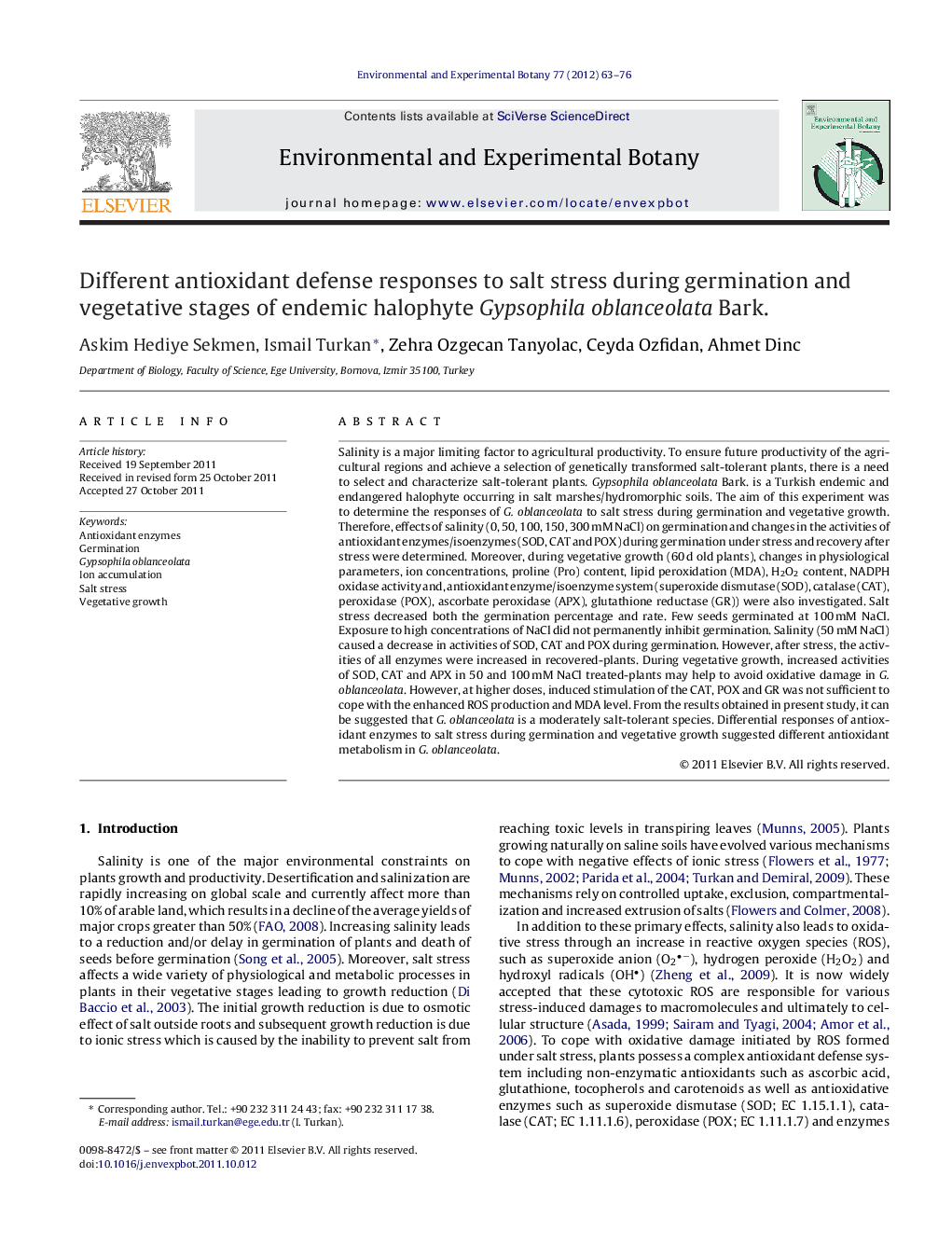| Article ID | Journal | Published Year | Pages | File Type |
|---|---|---|---|---|
| 4554670 | Environmental and Experimental Botany | 2012 | 14 Pages |
Salinity is a major limiting factor to agricultural productivity. To ensure future productivity of the agricultural regions and achieve a selection of genetically transformed salt-tolerant plants, there is a need to select and characterize salt-tolerant plants. Gypsophila oblanceolata Bark. is a Turkish endemic and endangered halophyte occurring in salt marshes/hydromorphic soils. The aim of this experiment was to determine the responses of G. oblanceolata to salt stress during germination and vegetative growth. Therefore, effects of salinity (0, 50, 100, 150, 300 mM NaCl) on germination and changes in the activities of antioxidant enzymes/isoenzymes (SOD, CAT and POX) during germination under stress and recovery after stress were determined. Moreover, during vegetative growth (60 d old plants), changes in physiological parameters, ion concentrations, proline (Pro) content, lipid peroxidation (MDA), H2O2 content, NADPH oxidase activity and, antioxidant enzyme/isoenzyme system (superoxide dismutase (SOD), catalase (CAT), peroxidase (POX), ascorbate peroxidase (APX), glutathione reductase (GR)) were also investigated. Salt stress decreased both the germination percentage and rate. Few seeds germinated at 100 mM NaCl. Exposure to high concentrations of NaCl did not permanently inhibit germination. Salinity (50 mM NaCl) caused a decrease in activities of SOD, CAT and POX during germination. However, after stress, the activities of all enzymes were increased in recovered-plants. During vegetative growth, increased activities of SOD, CAT and APX in 50 and 100 mM NaCl treated-plants may help to avoid oxidative damage in G. oblanceolata. However, at higher doses, induced stimulation of the CAT, POX and GR was not sufficient to cope with the enhanced ROS production and MDA level. From the results obtained in present study, it can be suggested that G. oblanceolata is a moderately salt-tolerant species. Differential responses of antioxidant enzymes to salt stress during germination and vegetative growth suggested different antioxidant metabolism in G. oblanceolata.
► Gypsophila oblanceolata is a Turkish endemic and endangered halophyte. ► It has different antioxidant metabolisms between germination and vegetative stages. ► It is sensitive to salt stress throughout the germination. ► It can withstand NaCl concentrations up to 300 mM NaCl at the vegetative stage. ► It displays an adaptive defense against 50 mM and 100 mM NaCl at vegetative stage.
